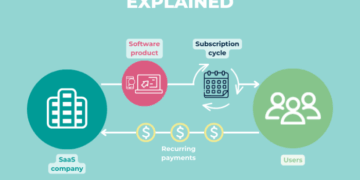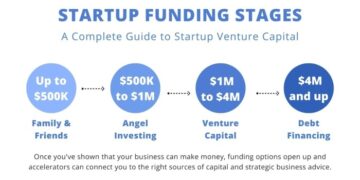As Startup business plans that attract investors takes center stage, this opening passage beckons readers into a world crafted with good knowledge, ensuring a reading experience that is both absorbing and distinctly original.
Exploring the key elements, market research strategies, unique value proposition, financial forecasts, and team dynamics that contribute to a successful startup business plan will be the focus of our discussion.
Elements of a Startup Business Plan
An effective startup business plan comprises various key components that are essential for attracting investors and showcasing the potential success of the venture.
Executive Summary
The executive summary provides a concise overview of the business plan, highlighting key points such as the business idea, target market, unique selling proposition, and financial projections. Investors often rely on the executive summary to quickly grasp the essence of the business and decide whether to delve deeper into the plan.
Market Analysis
A thorough market analysis Artikels the target market, industry trends, competitive landscape, and potential opportunities for growth. By demonstrating a deep understanding of the market dynamics, startups can showcase their market potential and attractiveness to investors.
Company Description
The company description provides background information about the startup, including its mission, vision, values, and legal structure. Investors look for a clear understanding of the company's identity and purpose to assess its long-term viability and alignment with their investment criteria.
Product/Service Line
Detailing the product or service line is crucial for investors to understand the value proposition and differentiation of the offering. Startups need to clearly articulate the features, benefits, and market fit of their products/services to demonstrate their potential for success and scalability.
Marketing and Sales Strategy
A well-defined marketing and sales strategy Artikels how the startup plans to acquire customers, generate revenue, and achieve growth. Investors seek to understand the go-to-market approach, customer acquisition cost, and sales channels to assess the feasibility and sustainability of the business model.
Financial Projections
Financial projections provide a roadmap of the startup's future performance in terms of revenue, expenses, profitability, and cash flow. Investors rely on these projections to evaluate the financial sustainability, growth potential, and return on investment of the startup.
Market Research and Analysis
Market research is a critical component of a startup business plan as it provides valuable insights into the market landscape, customer needs, and potential competitors. Conducting thorough market analysis helps startups understand the demand for their product or service, identify growth opportunities, and make informed decisions to attract investors.
Importance of Market Research
Market research allows startups to gather data on industry trends, customer preferences, and competitor strategies. This information helps in shaping the business strategy, setting realistic goals, and developing a unique value proposition that resonates with the target market.
- Identify target market segments and demographics
- Analyze market trends and potential growth opportunities
- Evaluate competitors and assess market positioning
- Understand customer needs and preferences
Effective Market Research Strategies
Startups can impress investors by showcasing a well-defined market research strategy that includes a mix of quantitative and qualitative methods. Some effective strategies include:
- Conducting surveys and interviews with target customers to gather feedback
- Analyzing industry reports, market data, and economic trends
- Utilizing social media and online analytics to track customer behavior
- Observing competitor activities and studying their strengths and weaknesses
Unique Value Proposition
A unique value proposition (UVP) is a concise statement that defines the specific benefit a product or service provides to the target customers, setting it apart from competitors. It is crucial for a startup business plan as it highlights what makes the business unique and why customers should choose it over others in the market.
Tips for Developing a Compelling Unique Value Proposition
- Identify the target market: Understand the needs and preferences of your target customers to tailor your UVP accordingly.
- Highlight the benefits: Clearly communicate the key benefits of your product or service and how it solves a problem or fulfills a need.
- Show differentiation: Showcase what makes your offering different from competitors and why it is superior.
- Keep it clear and concise: Your UVP should be easy to understand and remember, avoiding jargon or complex language.
- Evoke emotion: Appeal to the emotions of your target customers to create a strong connection and make your UVP memorable.
Impact of a Strong Value Proposition on Investor Interest
Investors are more likely to be interested in startups with a strong and compelling unique value proposition as it demonstrates the potential for success and differentiation in the market. A clear UVP can showcase the startup's growth potential, customer appeal, and competitive advantage, making it an attractive investment opportunity.
Financial Projections and Forecasts
Creating realistic financial projections for a startup business plan is crucial for attracting investors. It involves forecasting the financial performance of the business over a specific period, usually three to five years. These projections help investors understand the potential return on their investment and assess the viability of the business.
Importance of Accurate Financial Projections
Accurate revenue forecasts, expense estimates, and cash flow projections are essential for several reasons. They provide a roadmap for the business, guiding decision-making and resource allocation. Investors rely on these projections to evaluate the financial health of the business and determine its growth potential.
Additionally, accurate financial projections demonstrate the entrepreneur's understanding of the market, competition, and industry dynamics.
- Revenue Forecasts: Projected revenue should be based on market research, customer analysis, and pricing strategies. Investors look for realistic revenue projections that demonstrate a clear understanding of the target market and growth opportunities.
- Expense Estimates: Accurately estimating expenses is crucial for determining the business's profitability and sustainability. Investors want to see detailed expense projections that cover all operational costs, including overhead, marketing, and personnel expenses.
- Cash Flow Projections: Cash flow projections help investors assess the business's ability to manage its finances and meet its financial obligations. Investors are interested in cash flow forecasts that show a positive cash position and the ability to generate sufficient cash to support operations and growth.
Team and Advisory Board
When creating a startup business plan, one of the key elements that can significantly impact the confidence of potential investors is showcasing a strong and capable team. Investors often look for a team with a diverse set of skills, experiences, and expertise to navigate the challenges of building a successful business.
Highlighting key team members and their backgrounds can instill confidence in investors and demonstrate that the startup has the necessary talent to execute its vision.
Showcasing Expertise and Experience
It is essential to provide detailed profiles of key team members in the business plan, emphasizing their relevant experiences, skills, and achievements. This helps investors understand the strengths of the team and how their expertise aligns with the startup's goals.
By showcasing a team with a proven track record in their respective fields, investors are more likely to trust in the startup's ability to succeed.
Role of Advisory Board
Another crucial aspect to consider is the role of an advisory board in supporting the startup's growth and success. Advisory board members can provide valuable insights, industry connections, and strategic guidance that can help the startup navigate challenges and make informed decisions.
It is important to clearly Artikel the roles and responsibilities of the advisory board in the business plan, demonstrating how their expertise complements the skills of the core team.
Last Recap
In conclusion, a well-crafted startup business plan not only attracts investors but also sets the foundation for a successful entrepreneurial journey. By incorporating these essential elements, any startup can significantly increase its chances of securing funding and achieving long-term success in the competitive business landscape.
Question & Answer Hub
What are some key components of a compelling startup business plan?
Some key components include an executive summary, market analysis, company description, product/service line, marketing and sales strategy, and financial projections.
Why is a unique value proposition crucial for a startup business plan?
A unique value proposition sets a startup apart from competitors and demonstrates its competitive advantage, which can significantly impact investor interest.
What financial metrics do investors look for in a business plan?
Investors often look for realistic revenue forecasts, expense estimates, and cash flow projections to gauge the financial health and potential growth of a startup.
How important is showcasing a strong team in a startup business plan?
Showcasing a strong and capable team instills confidence in investors as it demonstrates the startup's ability to execute its business plan effectively and navigate challenges successfully.







